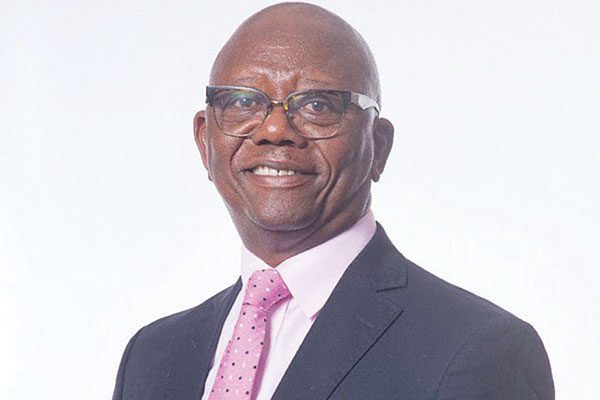
Sugar milling company Hippo Valley achieved an operating profit of $17 million for the year ended March 31, 2018, up from $13,4 million in the prior year.

This was buoyed by continued growth in local market sales assisted by the refineries which increased availability of refined sugar for the industrial market.
The company’s managing director Sydney Mutsambiwa (SM) spoke to NewsDay business reporter Fidelity Mhlanga (ND) after the company’s annual general meeting on September 26 on a wide range of issues. Below are the excerpts.
ND: What is the general sugar demand in the country?
SM: Well, sugar demand is very good. Year-on-year, we are 11% above last year. We are able to supply the market entirely.
We don’t anticipate any shortage of sugar. We have sufficient stocks already produced. As you might be aware, our seasons run to the end of November or early December.
As we speak right now, we have more than adequate stocks to carry us right through the production season and even to next year’s new season production.
ND: Are you also exporting some sugar?
- Chamisa under fire over US$120K donation
- Mavhunga puts DeMbare into Chibuku quarterfinals
- Pension funds bet on Cabora Bassa oilfields
- Councils defy govt fire tender directive
Keep Reading
SM: Yes, we will be exporting outside the country and in this past year, we have exported roughly 58 000 tonnes to Kenya and in the ensuing year, we will be exporting higher volumes well in excess of 100 000 tonnes.
There are deficit markets in the region and we will be exploiting these as they offer more returns, which are competitive compared to the world market at the moment.
ND: Are you in any way affected by sugar imports into the market?
SM: We are not aware of any imports that are coming into the country.
As you might know, all importers are required to obtain import licences from government and, as far as we are aware, no licences have been issued.
ND: What is your annual sugar output?
SM: Hippo Valley has got an installed capacity of around 300 000 tonnes per annum.
At the moment, we are anticipating to produce around 230 000 tonnes per annum in the current year. We are not at full capacity yet, but in the next couple of years we will get to full capacity as we ramp up our production.
ND: How are you going to do this?
SM: First of all, we have to produce at capacity. Once we reach capacity, then we can think about expanding capacity.
Our hectarage under sugarcane is designed to cater for our current installed capacity.
And our hectarage is inclusive of hectarage by the estate itself as well as outgrowers or model A2 farmers, as we call them.
ND: How much do you contribute in terms of hectarage?
SM: Outgrowers collectively produce about 17 000 hectares and supply both Hippo Valley and Triangle. Hippo Valley and Triangle estates produce on a combined 129 000 hectares.
So the total hectarage under sugarcane in the Lowveld sugar industry is about 146 000 hectares.
ND: What challenges are you facing in the sugar manufacturing industry?
SM: Well, it’s normal national problems associated with the foreign currency because we are a net foreign currency user.
Although we export, we don’t generate sufficient foreign currency to cater for all our requirements. We import a lot of production inputs. These are your fertilisers, your chemicals and we also have to service our milling machines, that requires foreign currency.
That is the biggest problem that we facing at the moment. In the past, water was always a problem but now the advent of the Tugwi-Mukosi Dam has solved that challenge. We don’t have to worry about water any more.
As you might be aware, the dam has a holding capacity of 1,8 million megalitres of water.
And when it’s full, it can cater for everybody else’s requirements, including our own, as well as the envisaged developments in the area.
ND: So when did you connect your estates to the dam?
SM: The system was installed many years ago in anticipation. We used to get water from the Tugwi River as flood flows until the dam was constructed.
So we had a reticulation system already constructed at the Tugwi-Mukosi Dam to uplift the water and then gravity feeds it through a 17km network of canals to our estates. So we anticipated this many years ago.
ND: How much forex do you require per annum?
SM: It’s difficult to tell. It’s a complicated issue. It depends on capital expenditure and repair and maintenance requirements.
We can only know that when we have a plant breakdown, for example. So, there is no such thing as an average. It’s not a sausage-making machine.
This is an agricultural enterprise with heavy machines. When there is a breakdown, it calls for maintenance. It means there’s a demand for that forex.
ND: Are you in any way affected by power cuts?
SM: We don’t have any electricity problems. We have prepayment arrangements with Zesa Holdings. We generate our own electricity and we bank in the system drawdown as and when we need it.
ND: What the future prospects of the company?
SM: Prospects look good. We are very buoyant. The demand is good. There is no reason why we cannot improve on our performance and productivity to become more competitive and deliver our product efficiently to the market.











